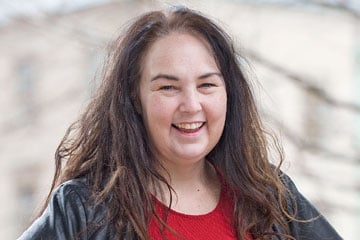
In the last bencher election, in 2015, all 22 incumbent lawyer benchers that ran for re-election kept their seats in Convocation, of 40 available spots, according to statistics from the Law Society of Ontario analyzed by Law Times.

In the last bencher election, in 2015, all 22 incumbent lawyer benchers that ran for re-election kept their seats in Convocation, of 40 available spots, according to statistics from the Law Society of Ontario analyzed by Law Times.
With the bencher election coming later this month and a record-setting number of candidates, hopefuls are addressing whether incumbents have an advantage.
The voting period is from April 15 to April 30 in what will be the first joint election for both lawyer and paralegal benchers, with 40 spots for benchers and five for paralegals.
Signa Daum Shanks, a professor at Osgoode Hall Law School and a bencher candidate, says people do not necessarily have to be incumbents to win in elections.
“Statistically, incumbents regularly do win, but I’d say there are so many people that have ended up in position or won an election that have a story where an incumbent has not won.”
This election cycle, incumbent and former benchers have both informally and formally endorsed some of the new talent entering the race.
Daum Shanks says she doesn’t have a budget or marketing office spearheading her campaign and notes that Indigenous practices make the process of seeking endorsements different for her.
While the incumbents’ advantage is usually chalked up to name familiarity, Daum Shanks says that, although name familiarity and incumbency may overlap, they are two independent factors.
“Let’s say somebody is quite well known and they are a new candidate. How their fame compares to an incumbent is anybody’s guess. So, I think that’s why all of us are wanting to meet people and have them be familiar to us. That’s as much a key as being an incumbent,” she says.
Mirilyn Sharp is a 1985 call and litigation partner at Blaney McMurtry LLP in Toronto. Name recognition, she says, is first and foremost among incumbents’ advantages.
“Many lawyers simply vote for the names they recognize without even reading the platforms,” she says. “That’s fair enough if they know the candidate but quite concerning if the vote is simply for a recognizable name.”
Another factor is incumbents’ experience and record as benchers.
“My sense is that, in many cases, re-election happens because voters are content with how things are going, even though they may not be aware of just what the last slate has been doing,” she says.
Atrisha Lewis, a first-time candidate and litigation associate in McCarthy Tétrault LLP’s Toronto office, is a 2013 call who is “100-per-cent” certain that incumbents hold the aces.
“The name recognition advantage they have is compounded by the fact that being a bencher means they get to work with a lot of different people and expand their networks,” she says.
And like Sharp, Lewis says that having a large established network in place may be all that’s required to be re-elected if there isn’t an upsurge in the numbers of lawyers who vote in the election.
“With the turnout that we get, which was about 35 per cent in 2015, you don’t actually require a significant number of votes, because 3,000 or so will do it,” she says.
“What you really need is a voting bloc, and it’s the incumbents who have had the opportunity to figure out where their magic spot is.”
But Sid Troister, a real estate partner at Torkin Manes LLP in Toronto, who was first elected as a bencher in 2015, says this election may be different.
“I don’t know of a single incumbent who is resting on their incumbency to get re-elected,” he says.
“This is the first election where social media could be a factor, and that may change the landscape, which was previously all about name recognition.” Other things have changed as well.
“There are none of the big firm alliances that people used to speak of and not even much in the way of sharing endorsements,” says Troister.
— with files from Anita Balakrishnan